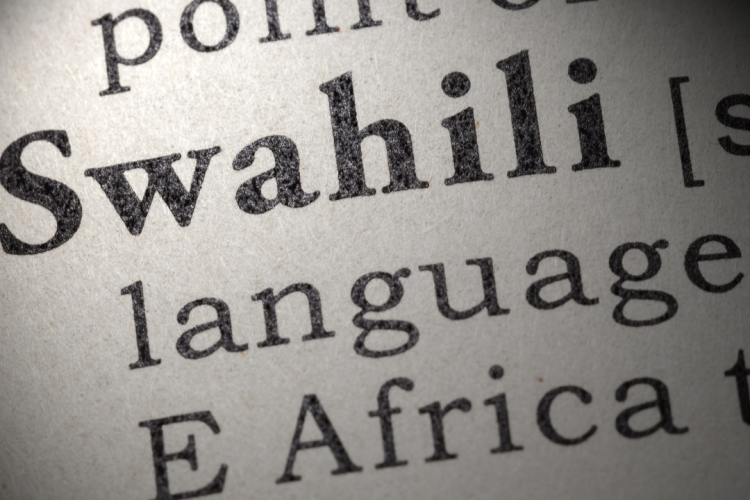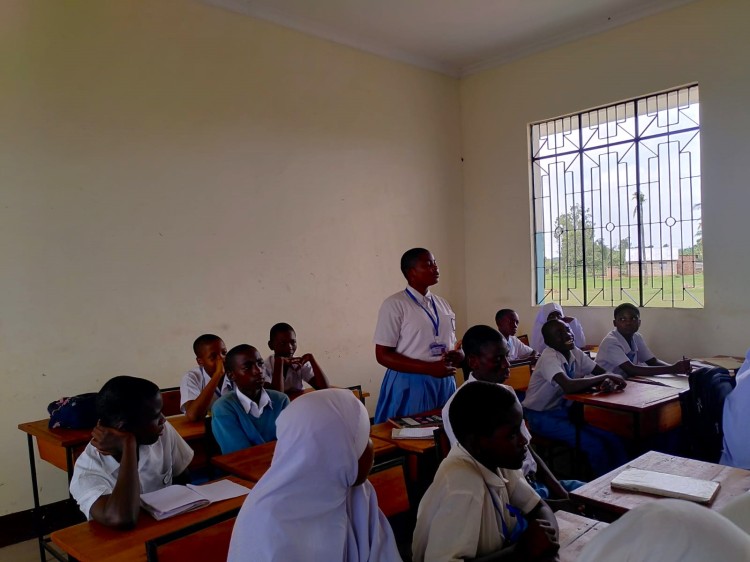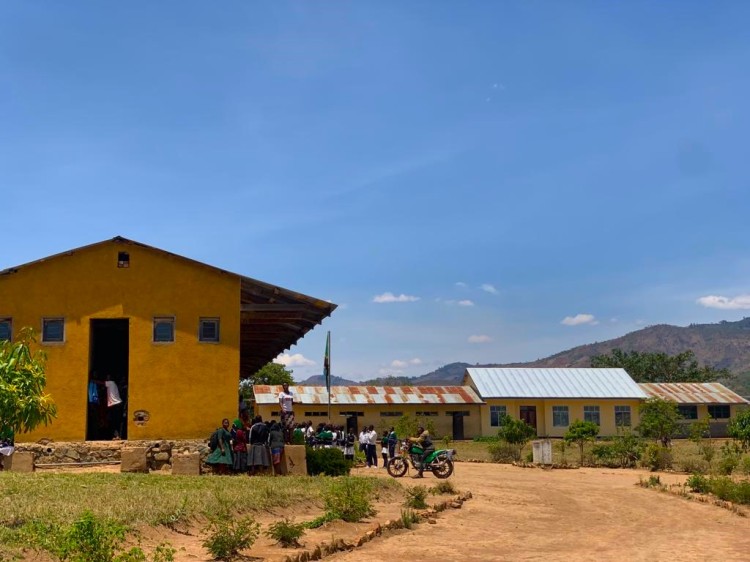Medium of instruction in Tanzanian Schools
The Tanzanian school system is in many ways different than that we volunteers were used to in Germany. In this article we want to get a deeper insight into the language of instruction, with Tanzania being home to more than 120 different languages. Therefore, we decided to interview one member of PADECO (an NGO based in Njombe dealing with water supply, scholarship and social issues), Martha Mhagama, and Ibrahim Gambaseni.
 Lingua franca Kiswahili is getting more and more important as an integrating force in Africa. [Foto von DTP, No copyright]
Lingua franca Kiswahili is getting more and more important as an integrating force in Africa. [Foto von DTP, No copyright]
Martha Mhagama went to Songea Girls Secondary School and studied Community Development. Ibrahim Gambaseni went to Philip Mangula Secondary School and later dropped out of St. Joseph University studying Electronics and Communication Engineering. Now he has a digital design company located in Njombe and is the director of an NGO dealing with education and capacity building.
What is the language you use in school in Tanzania?
Ibrahim: From kindergarten to primary school, it is mainly Kiswahili. Only the subject English is taught in English.
Martha: In secondary school and university, English is the medium of instruction in all subjects. Only Kiswahili is taught in the Kiswahili language.
How strict is the use of English in secondary schools, are the teachers enforcing it a lot of the time or only rarely?
Martha: They are enforcing it a lot. There are very strict rules, where students are not allowed to speak any other language than English. You can find signs like “No English, No Service” hanging somewhere in the teacher’s staffroom or “Speak English” all over the school. Sometimes they are punishing those who speak Kiswahili or our vernacular languages.
Ibrahim: Yes, if caught by a teacher or a leader the result is punishment. For example, at my school there was a board written “Kiswahili Speaker”. Then you had to walk around with it and hand it over to the student who has been caught speaking Kiswahili. Then the next student had to wear it around the neck until he/she has found someone speaking Kiswahili. This has been going on until evening, when the first person had to name the student which he/she gave the board to. This student was punished and had to name the next student too. And then all the other students until all Kiswahili speakers of the day have been identified. The punishment normally was physical punishments like whipping. Sometimes those whips made you unable to sit comfortably.
Martha: But there was one thing that teachers were emphasizing: “Broken English is allowed”. So, you can mix Kiswahili and English. At least you do not speak English only.
Was this language also enforced/spoken outside the classroom?
Martha: In secondary school, teachers were also encouraging students to speak English outside the classroom but it didn’t work at all. We spoke Kiswahili outside the classroom most of the time.
Did you and your classmates struggle with English or was it rather easy?
Martha: Yes, we struggled a lot to speak English.
Ibrahim: Personally, I did not struggle with English because I had a good foundation from the English lessons with my uncle. He was a translator working with the Peace Corps from America who were constructing a library at our village. My uncle wanted me to read many English books. This was very helpful to my studies. But my classmates struggled a lot.
If you struggled, in which situations was it especially hard?
Martha: Especially during exams because sometimes you found uncommon vocabulary in exams. So, we struggled to perform well in exams only because of the language. Also, during debate time. It was hard for us to argue just because of English.
Did you feel like you got the support you needed in order to learn/improve in the language?
Martha: No, not at all. Teachers just wanted us to speak English. But they have never put much effort into teaching English, so students can improve their language skills.
Ibrahim: From my uncle, yes. From teachers, no. From movies, yes. From school books, no. From school debates absolutely - they were my test grounds.
What is your opinion on the current language system at school?
Ibrahim: It is not good. Imagine someone is learning everything in Kiswahili for 7 and more years and then he is forced to shift into English without any smooth transition phase in between. So, we should either stick to Kiswahili or incorporate English early on.
Martha: I would suggest to switch to Kiswahili as the medium of instruction. It's our mother tongue so it would be easier for students to perform well.
Do you think that performance of students would increase if the system was changed?
Ibrahim: I would not expect major changes in the performance of students. If we look at the performance in primary level. Everything is taught in Kiswahili there, but performance is still like the performance in secondary level. Another example is Kiswahili Subject in secondary level. If students would be performing well in Kiswahili subject, then I would say yes, teaching each subject in Kiswahili would help. So, in my opinion, this is a systematic problem that is more than just a language barrier.
Martha: I agree that the performance in Kiswahili subject is not extremely good but still a bit higher than in other subjects. And as I said, learning in Kiswahili would be easier for us as it is our mother tongue. So, I think the performance of students would increase if the system was changed. But I also agree that there are other barriers as well, for example, less time for studies because students have to help much at home.
Kiswahili is getting more and more important as a lingua franca and an integrating force in Africa, especially in East Africa. It is not only one of the official languages of the East African Community but also one of the African Union. The last two governments under Kikwete and Magufuli have expressed their desires to change the language of education to Kiswahili. However, the current government has announced that the language policies in regards to English will remain the same. How the situation will develop in the future isn’t clear.



